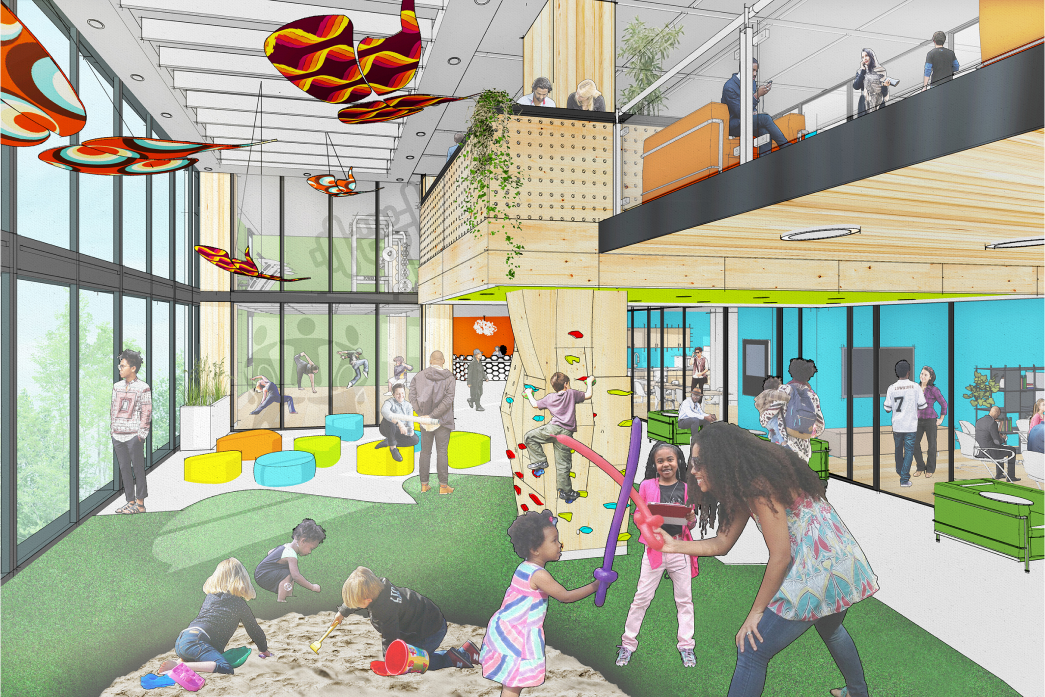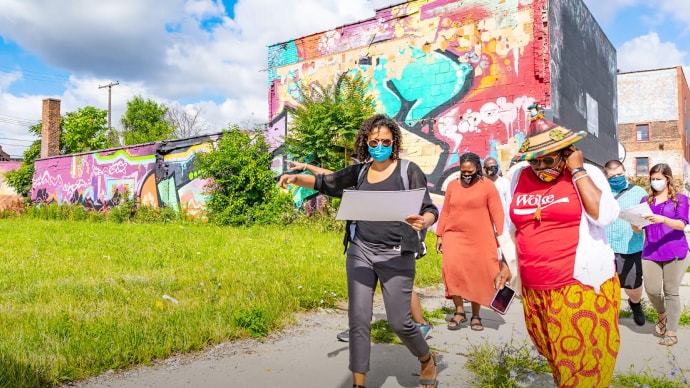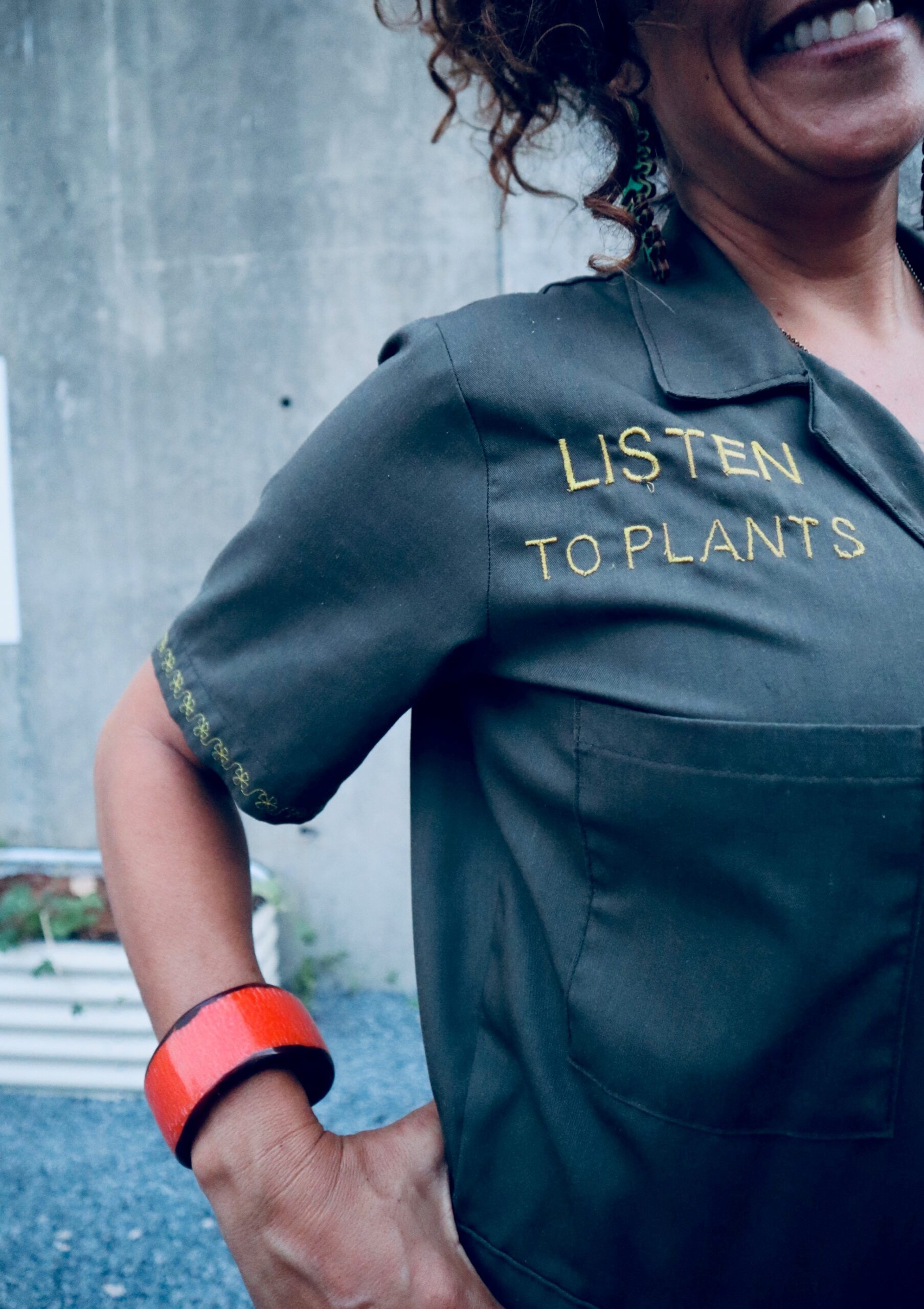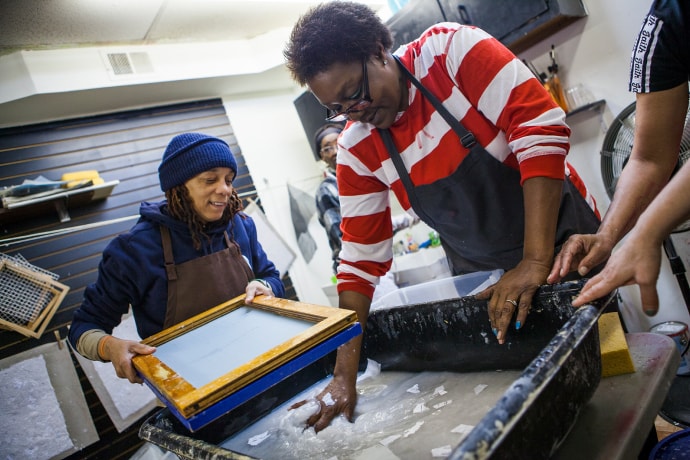Imagining New Visions of Shared Safety

As a time-limited fund, A4J prioritized policy initiatives that were both urgent and achievable on a five-year timeline. When generous donors contributed an additional $22 million, guaranteeing a sixth year of grantmaking, the Fund embraced the opportunity to ensure its investments in criminal legal transformation continued to bloom well past its closure.
The grantmaking strategy for the Fund’s final year included nurturing bold ideas that circumvented traditional notions of justice, which are rooted in punishment and isolation. Grantees were encouraged to envision and design new pathways to justice and shared safety, revealing what a world without mass incarceration and immigrant detention looks like.
Designing Justice + Designing Spaces
Designing Justice + Designing Spaces (DJDS) is an architecture and real estate development nonprofit working to end mass incarceration by creating spaces for restorative justice, community engagement, and housing for people coming out of incarceration. DJDS employs a trauma-informed approach to developing physical spaces that center system-impacted individuals’ expertise, wellness, and healing. One example is their Women’s Mobile Refuge Trailer. This initiative provides a safe space for women as they grapple with difficult environments, including a drop-in center to help them secure more stability.

The Solitary Gardens
jackie sumell is a multidisciplinary artist who has worked at the intersection of art, abolition, and education for over 20 years. Her public art project The Solitary Gardens facilitates exchanges between people in solitary confinement and volunteer proxies on the “outside.” Constructed to the dimensions of solitary confinement cells from the byproducts of sugarcane, cotton, tobacco, and indigo—the largest chattel slave crops—the beds are “gardened” by incarcerated individuals through written exchanges, growing calendars, and design templates. As the garden beds mature, the prison architecture they are designed to correspond with is overpowered by plant life. In 2022, The Solitary Gardens were featured in MoMA PS1’s courtyard, as part of a larger plant-powered initiative called Growing Abolition.

The People’s Paper Co-op
The People’s Paper Co-op (PPC) is a women-led art and advocacy project at the Village of Arts and Humanities in North Philadelphia. The PPC sees women in re-entry as leading criminal legal experts and uses art to help them amplify their stories, dreams, and visions for a more just and free world. Since 2018, the PCC has collaborated with the Philadelphia Community Bail Fund on its annual Mama’s Day Bail Out campaign. Each year, PCC organizes exhibitions, parades, press conferences, and events to raise awareness and funds, while sharing the stories, dreams, and demands of formerly incarcerated women with thousands of Philadelphians. Their poster and t-shirt designs have raised over $200,000 to free Black mothers and caregivers, using Mother’s Day as an impetus.
